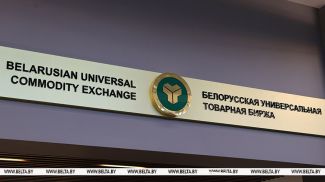MOSCOW, 17 February (BelTA) – The Eurasian Economic Commission (EEC) invites the parliaments of the Eurasian Economic Union (EAEU) member states to start exchanging legislative plans to prevent the emergence of new barriers in the EAEU, Iya Malkina, Aide to the Chairman of the Board of the Eurasian Economic Commission, said answering a question from a BelTA reporter whether the bill submitted by the Russian government to the State Duma on mandatory medical examination and fingerprinting for migrant workers from the EAEU countries would violate one of the basic principles of the EAEU - freedom of movement of workforce, and whether it will become a new barrier in the union.
Iya Malkina noted that, in accordance with the Treaty on the Eurasian Economic Union, the EEC is primarily responsible for monitoring the legislation of the EAEU countries, while bills are currently not the subject of such monitoring. “At the same time, Chairman of the EEC Board Mikhail Myasnikovich has already put forward a proposal to exchange plans for legislative activities and concepts of draft laws before their first reading. We in the EEC believe that this would allow achieving greater harmonization of the laws of the EAEU participating states and preventing possible problems and the emergence of new barriers,” Iya Malkina said.
“We invite the parliaments of the EAEU member states to start cooperating this way,” the EEC representative said.
On 1 February the Russian government submitted to the State Duma a bill on compulsory fingerprinting registration, photographing and medical examination of foreigners who arrive in the Russian Federation visa-free and stay in the country for a long time, including for the purpose of working. There are a number of groups of foreign citizens who can stay in Russia for a long time without fingerprint registration and medical examination. Most of them are citizens of the Eurasian Economic Union member states. According to the authors of the bill, there were about 2.5 million of them in Russia as of 1 March 2020.
The bill seeks to amend the law on the legal status of foreign citizens and the law on state fingerprinting registration in the Russian Federation. If the bill is signed into law, foreign nationals who arrive in the Russian Federation on a visa waiver and stay there for the period of over 90 days in a year in total, will have to undertake mandatory fingerprinting registration, photographing and subsequent biometric identification, as well as medical examination. Foreign nationals who intend to work in the Russian Federation will have to complete these procedures within 30 calendar days from the date of entry.













